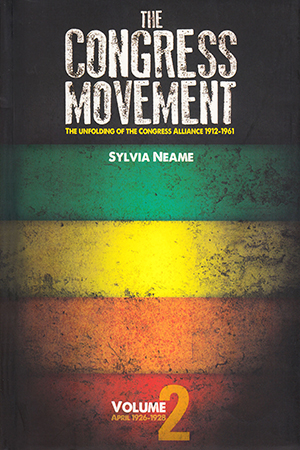
- 2015/543 pages
- Distributed for HSRC Press
The Congress Movement, Volume 2:
The Unfolding of the Congress Alliance 1912-1961
Paperback: $35.00
ISBN: 978-0-7969-2487-2
The Congress Movement, based on primary and secondary sources including some 80 interviews dating back to the early 1960s, uniquely combines narrative and analysis.
Volume 2 examines the intricate development of the ICU and the ANC in the second half of the 1920s. Various trends of reformism and radicalism affected these two organizations. This later led to the beginning of the breakup of the ICU with the secession of the Natal contingent, in part under the influence of a narrow ethnic Zulu nationalism. The breakwaway also took place in the wake of an important phase in which the ICU leaders had become identified with a peasant uprising on white-owned farms.
Volume 2 examines the intricate development of the ICU and the ANC in the second half of the 1920s. Various trends of reformism and radicalism affected these two organizations. This later led to the beginning of the breakup of the ICU with the secession of the Natal contingent, in part under the influence of a narrow ethnic Zulu nationalism. The breakwaway also took place in the wake of an important phase in which the ICU leaders had become identified with a peasant uprising on white-owned farms.







